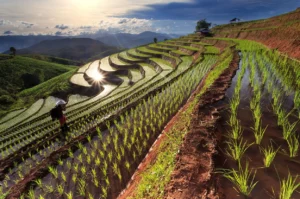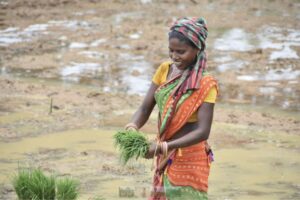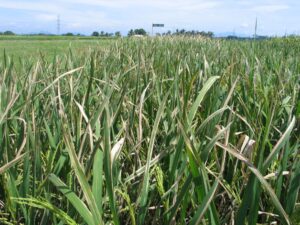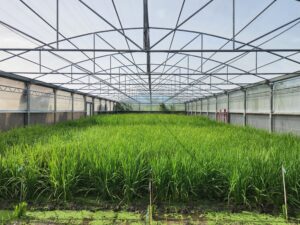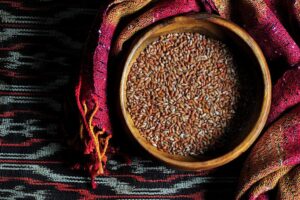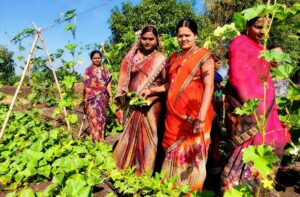The collaborative projects, that include the Stress-Tolerant Rice for Africa and South Asia (STRASA), promoting stress-tolerant rice varieties (STRVs) through demonstrations by IRRI and the Department of Agriculture (DoA) of Uttar Pradesh, India, held its review and planning meeting at Lucknow, Uttar Pradesh on 6 November 2015.
Around 50 participants, including implementing partners, officials from the DoA, and a few beneficiary farmers from several districts, were present to review the performance of STRVs in the current season and to discuss the next year’s activities.
C.P. Srivastava, deputy director of agriculture-seed and farms, gave the opening remarks at the meeting and highlighted the drought situation in the state. He mentioned that farmers had good feedback on the drought-tolerant variety Sahbhagi Dhan, which yielded better than other popular varieties. Manzoor Dar of the IRRI India office gave the overview of the project, highlighted other activities going on in the state, and presented the results of the demonstrations for 2015-16. B.N. Singh, rice breeder and former director of the Central Rice Research Institute, Cuttack, also presented his collaborative work with the STRASA project in Uttar Pradesh and emphasized production of quality seed for further dissemination. R.K. Singh, director of the Nand Educational Foundation for Rural Development (NEFORD), spoke about the impact of Sahbhagi Dhan in Mau, where farmers are excited about the variety. It showed better yield as compared to others under the prevailing drought season.
NGO partners from 14 districts presented their work and shared their experiences on the performance of STRVs in their areas. All of them approved of the good performance and suitability of the new STRVs. Farmers from different districts were also invited to share their experiences and they spoke about the success of the demonstration varieties.
Arvind Singh Bisht, state information commissioner of Uttar Pradesh, was chief guest and chair of the meeting. In his remarks, he emphasized the need to increase productivity and production to cope up with the increasing population. He was satisfied about the current success of the STRVs and said that such technologies can potentially help in addressing food security. He also expressed appreciation for the good work done by the project to create awareness about these varieties and reach thousands of farmers.
Learn more about IRRI (www.irri.org) or follow us on social media and networks (all links down the right column).


